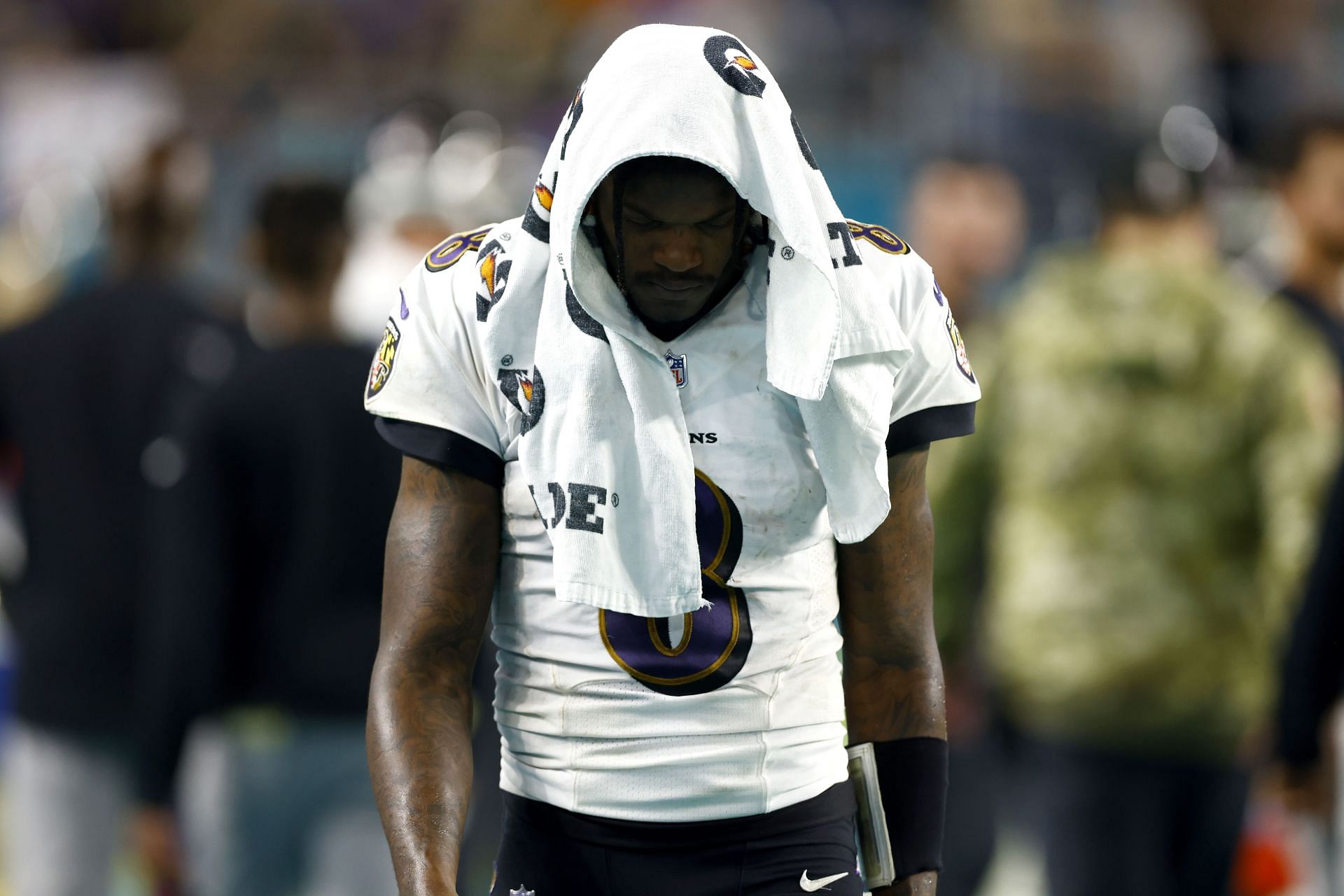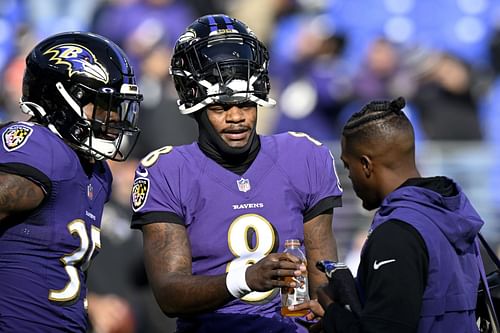
Lamar Jackson contract: Why Ravens think QB isn't worth the risk in long-run
Lamar Jackson and the Baltimore Ravens have yet to come to a contract agreement for the long term. They placed the non-exclusive franchise tag on him yesterday, which means he can talk to other teams in free agency, but any deal can be matched by the Ravens.
Jackson doesn't want to play on what is effectively a one-year, $32 million contract. He wants something long term and he wants it to come with a lot of guaranteed money.
The Ravens aren't sure he's worth it, or at least they're not sure he's worth what he's asking for. Thus, the franchise tag.
This situation is what both sides want. Jackson has a bidding war over himself and can probably get the best deal out of the Ravens as a result. For the Ravens, this might prove to Jackson that no team will give in to his demands, which will ultimately lower the final price tag.
Why don't the Ravens think Lamar Jackson is worth long-term money?
It seems like a no-brainer for the Baltimore Ravens to give Lamar Jackson what he wants. Without him, the team would have been bad and if they let him go, they'd have to rebuild with nothing on offense.

However, the Ravens clearly have some major reservations. They don't want to give in to his demands. Why is that?
The most likely reason is injuries. Giving someone a long contract with a lot of money guaranteed can bite teams if the player gets hurt, something Jackson has done in two consecutive seasons.
In fact, he's never started 16 games in a season. In the last two seasons, injuries have caused him to start 12 games each campaign.
Jackson's style of play can lead to more hits. He's arguably the most shifty runner in the entire NFL and knows how to avoid contact, but the simple truth is that a player who runs is at risk of more hits than a player that doesn't.
Jackson also isn't a huge player. A blindside sack from T.J. Watt or someone could do some serious damage and that can happen without warning.
The Ravens don't want to invest so much guaranteed money into someone they feel is at risk of being injured.